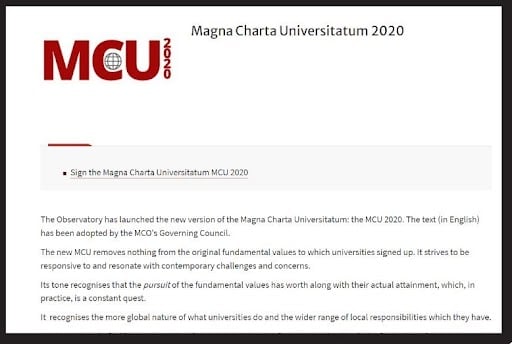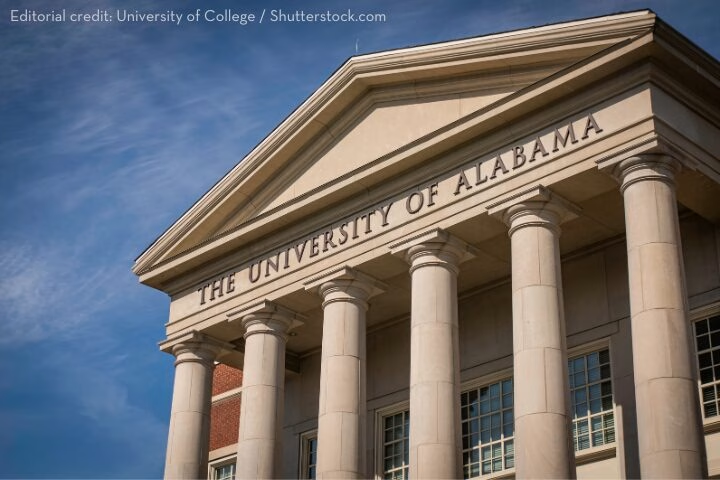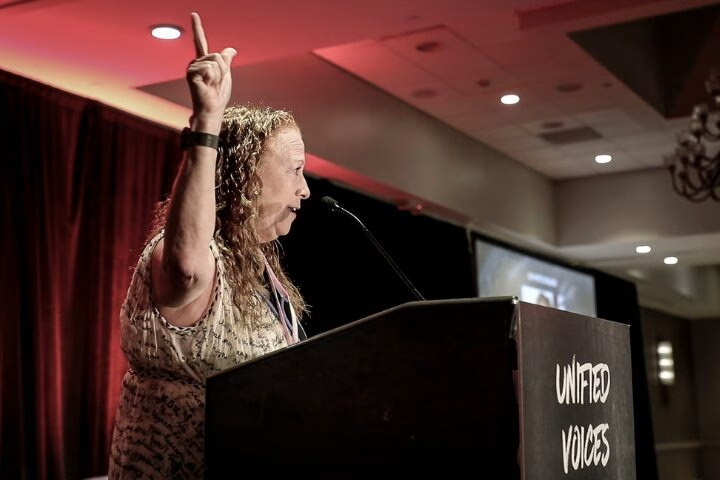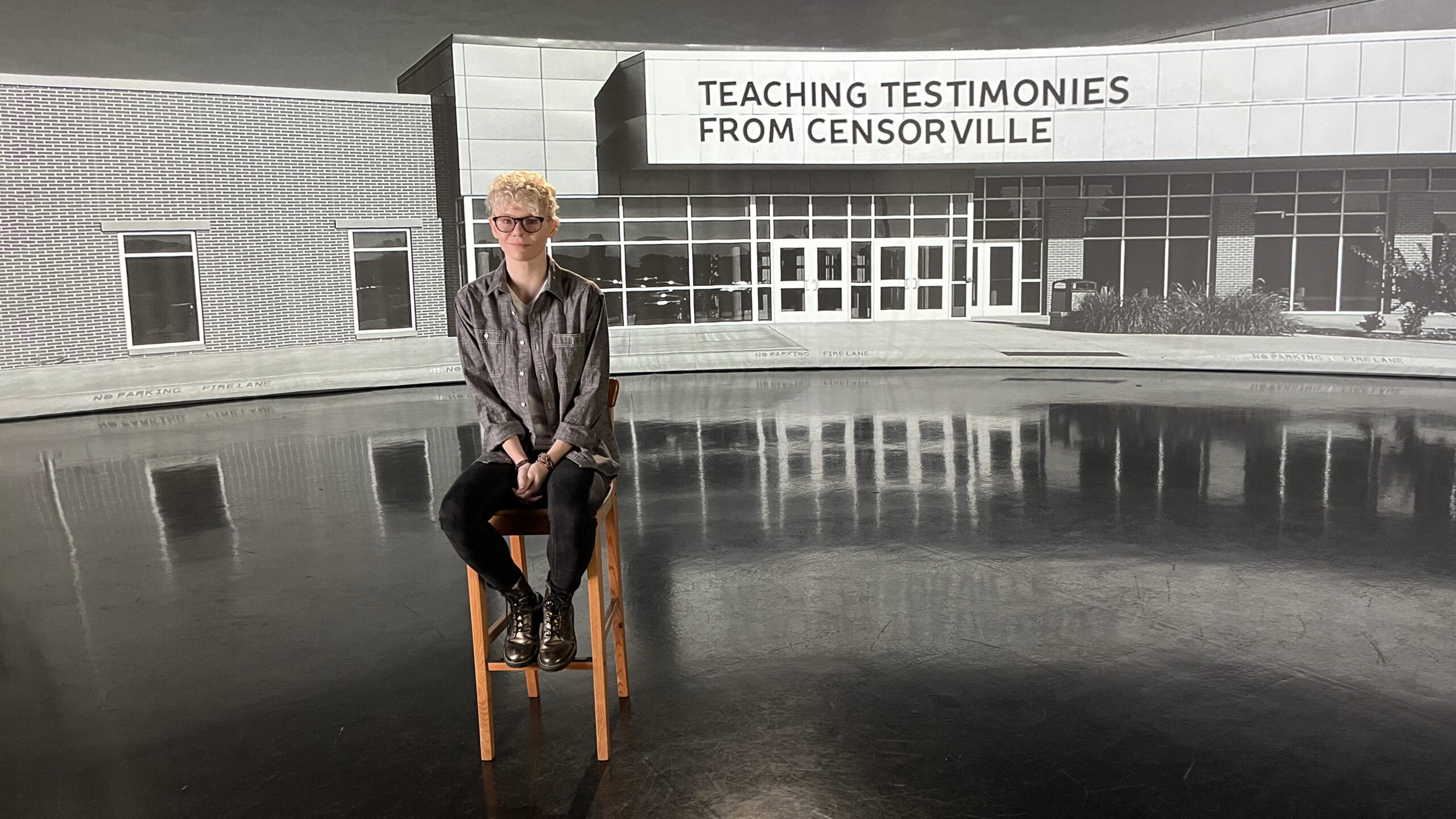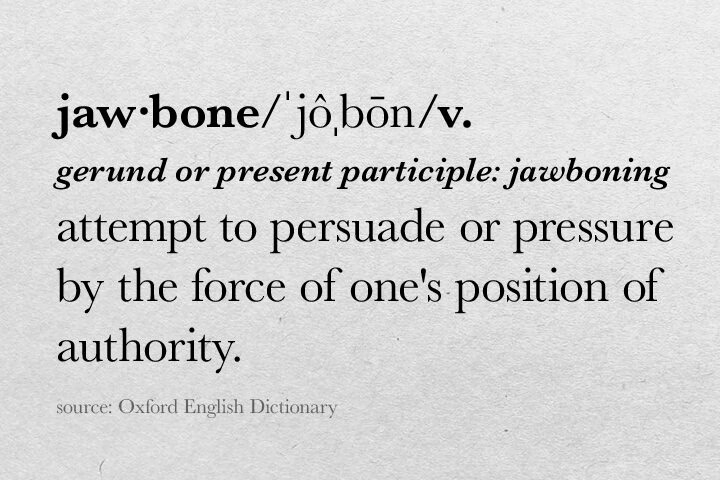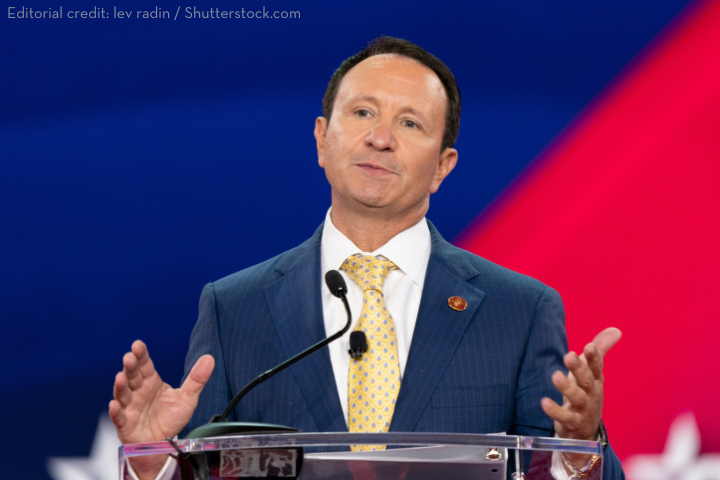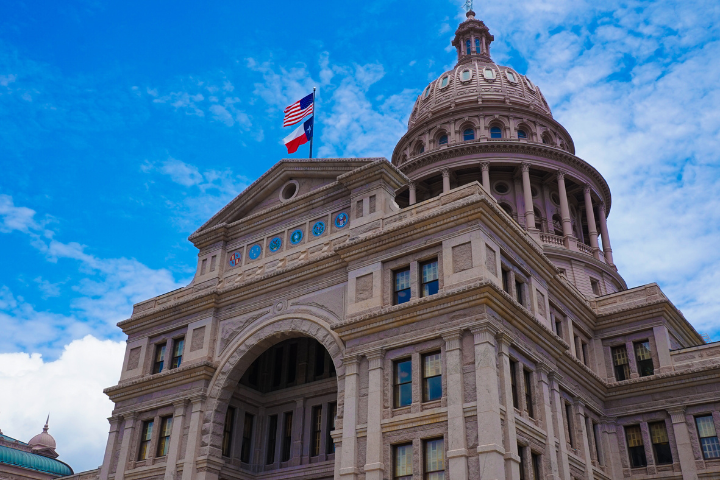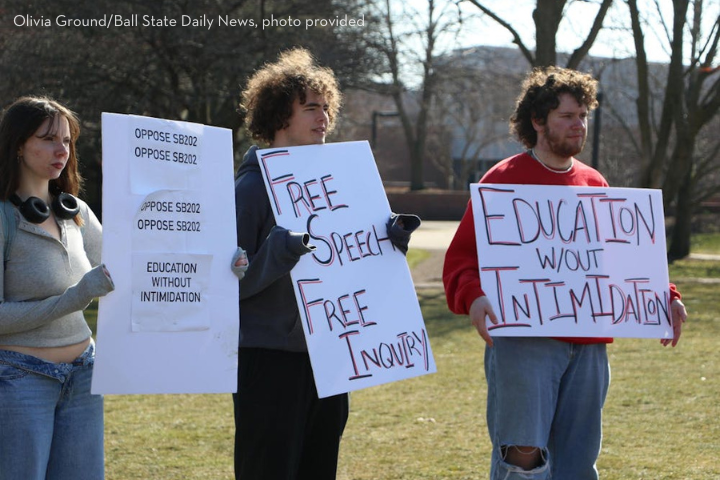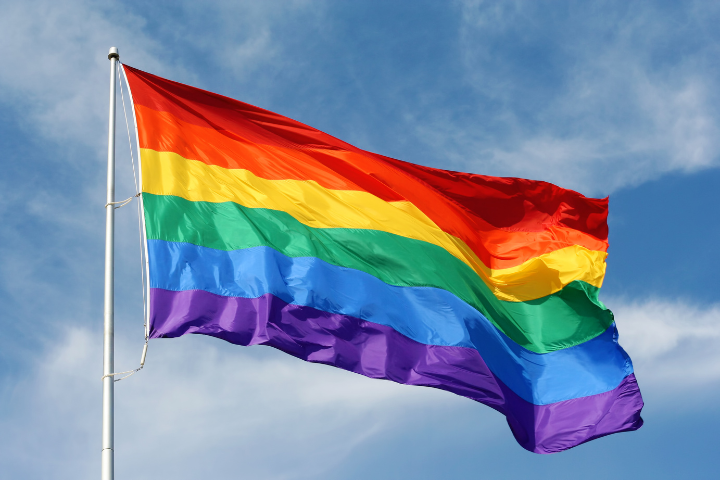Following a tense election season, universities might be one of the last remaining places where students can productively digest major national and world events and learn about other perspectives from their classmates and professors. PEN America’s Jeremy C. Young and Jacqueline Allain have written that, especially in arts and humanities courses, university classrooms can serve as “laboratories for democracy.”
Tragically, laws such as Indiana’s SB 202, that went into effect this year will undermine such important conversations.
PEN America’s recent report America’s Censored Classrooms 2024 discussed Indiana SB 202—a bill that claims to promote “viewpoint diversity.” Per SB 202, faculty must ensure that they are fostering a culture of “free inquiry,” “free expression,” and “intellectual diversity” in their courses. These are noble ideas and worthy of support. But in practice, the law’s enforcement mechanism does the opposite, and censors faculty speech.
That’s because the bill establishes that a faculty member’s failure to comply can be reported to the Board of Trustees by university employees and even by their own students. Faculty may be disciplined, including being denied tenure or fired, if the trustees believe that they are “unlikely to foster a culture of…intellectual diversity” or that they might at some future point “subject students to political or ideological views and opinions that are unrelated to the faculty member’s academic discipline or assigned course of instruction.” Every five years, the Board of Trustees will also review how well tenured faculty have complied with the bill, regardless of whether or not a complaint has been made. Note that the penalty may be triggered not only by the professors’ actions, but by the trustees’ assumptions of what might occur. The most likely result of this scrutiny is that faculty members will refrain from opening up dialogue on controversial topics out of fear that a student might accuse them of not living up to the trustees’ standard of “viewpoint diversity.”
In essence, colleges and universities in Indiana are now poised to weaponize the phrase “viewpoint diversity” against any faculty who teach courses that might challenge the worldview of any students or trustees. The inevitable result is that college classrooms — those “laboratories of democracy” –will be muzzled. Never mind the fact that it is in classrooms where students often feel safest to have conversations with their peers, as surveys of students in the University of North Carolina system and University of Wisconsin system have demonstrated.
Professors in Indiana are well aware of the threat, and have taken a stand. Earlier this year, faculty at Purdue and Ball State passed resolutions in opposition to the bill. Indiana University president and faculty have also come out in opposition. Nonetheless, Indiana students have been given the invitation to police their own professors.
But what if they want to learn from them instead? What if Indiana students want to discuss the forces shaping the election in a political science, sociology, or history class, guided by their professor and the methodologies of those disciplines? The Indiana Legislature has put that in jeopardy, taking away students’ opportunity to process complicated national events within the context of a classroom, through dialogue.
In so doing, they have shut down one of the best avenues for students to engage with new and different perspectives on current events. This is a tragic loss for those students, for higher education, and for our democracy.


